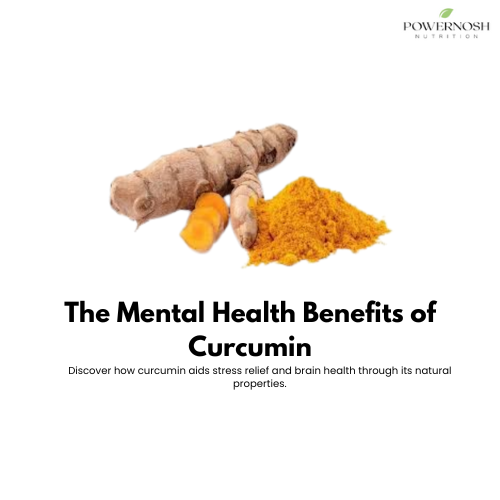
Curcumin: A Natural Boost for Mental Wellness & Stress Relief
Share
Curcumin, the active compound found in turmeric, has been revered for centuries for its medicinal properties. Beyond its culinary use as a spice, curcumin has emerged as a promising agent for promoting mental wellness and managing stress. In this article, we delve into the science behind curcumin's potential benefits and explore how it can contribute to overall mental well-being.
Nutritional Value and Composition of Curcumin
Curcumin belongs to a class of compounds known as curcuminoids, which are responsible for the vibrant yellow color of turmeric. Despite its small concentration in turmeric, curcumin packs a powerful punch in terms of its health-promoting properties. Structurally, curcumin possesses antioxidant, anti-inflammatory, and neuroprotective properties, making it a valuable addition to any diet aimed at supporting mental health.
However, curcumin's bioavailability poses a challenge, as it is poorly absorbed by the body when consumed alone. To enhance absorption, it is often recommended to consume curcumin with black pepper or in combination with fats.
Health Benefits of Curcumin for Mental Wellness
Research suggests that curcumin may play a pivotal role in supporting mental wellness and cognitive function. Studies have shown that curcumin can cross the blood-brain barrier, allowing it to exert its effects directly on brain tissue.
One of the primary mechanisms by which curcumin benefits mental health is through its anti-inflammatory properties. Chronic inflammation has been implicated in the development of various mental health disorders, including depression and anxiety. By reducing inflammation in the brain, curcumin may help alleviate symptoms associated with these conditions and promote overall mental well-being.
Additionally, curcumin has been found to increase levels of brain-derived neurotrophic factor (BDNF), a protein that supports the growth and maintenance of neurons. Low levels of BDNF have been linked to depression and other mood disorders, highlighting the importance of maintaining optimal BDNF levels for mental health.
Stress Management Properties of Curcumin
In today's fast-paced world, stress has become a ubiquitous part of daily life. Fortunately, curcumin may offer a natural solution for managing stress and its associated symptoms. Curcumin's antioxidant properties help neutralize free radicals and reduce oxidative stress, which can accumulate in the body during periods of chronic stress.
Moreover, curcumin has been shown to modulate stress pathways in the body, including the hypothalamic-pituitary-adrenal (HPA) axis, which regulates the body's stress response. By influencing these pathways, curcumin may help restore balance to the body and promote resilience to stressors.
Clinical Studies and Research Findings
Numerous clinical studies have investigated the effects of curcumin supplementation on mental health and stress management. In a randomized controlled trial published in the Journal of Affective Disorders, participants with major depressive disorder who received curcumin supplementation experienced significant improvements in depressive symptoms compared to those who received a placebo.
Similarly, a meta-analysis published in the Journal of Clinical Psychopharmacology found that curcumin supplementation was associated with significant reductions in symptoms of anxiety across multiple studies. These findings suggest that curcumin holds promise as a natural intervention for alleviating symptoms of depression and anxiety.
Culinary Uses and Incorporation of Curcumin into the Diet
Incorporating curcumin into your diet is easy and delicious. Turmeric, the spice from which curcumin is derived, is a staple in many cuisines around the world. It can be added to curries, soups, stews, and rice dishes to impart flavor and color.
To enhance the bioavailability of curcumin, consider consuming turmeric with black pepper, which contains piperine, a compound that enhances curcumin absorption. Alternatively, curcumin supplements are available in capsule or powder form for those looking to boost their intake.
Safety Considerations and Potential Side Effects
Curcumin is generally safe for most people when consumed in moderate amounts as a food seasoning or supplement. However, high doses of curcumin may cause gastrointestinal upset or interact with certain medications. It is essential to consult with a healthcare professional before starting curcumin supplementation, especially if you have underlying health conditions or are taking medications.
Conclusion
In conclusion, curcumin offers a natural and effective way to support mental wellness and manage stress. With its anti-inflammatory, antioxidant, and neuroprotective properties, curcumin has the potential to positively impact mood, cognitive function, and overall well-being. By incorporating curcumin-rich foods or supplements into your daily routine, you can harness the power of this ancient spice to promote mental health and resilience in today's hectic world.
Source link:
https://www.ncbi.nlm.nih.gov/pmc/articles/PMC8863697/

